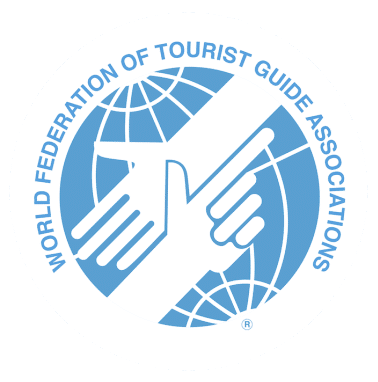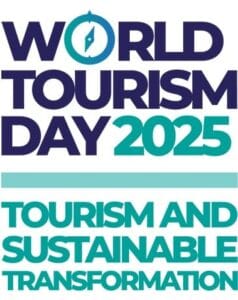Tourist Guides and the Real Work of Sustainable Transformation
Vienna – On this year’s World Tourism Day, celebrated under the UN’s theme “Tourism and Sustainable Transformation”, the World Federation of Tourist Guide Associations (WFTGA) proudly reaffirms its commitment to a tourism future that is just, inclusive, resilient, and human-centred.
As an NGO Affiliate of UN Tourism, we fully support this year’s focus—not as a slogan, but as a call to action. Sustainable transformation in tourism must be more than carbon offsets and reusable bottles. It must include structural change, fairness, and professional respect—especially for those on the frontline of visitor experience: Tourist Guides.
Sustainability Begins with the People Who Deliver It
At WFTGA, we have heard the word sustainability in countless forums. For many guides, it can feel repetitive. But in the face of climate disruption, rising inequality, and cultural fragmentation, the theme remains urgent.
We must also ask:
What does sustainability mean for a Tourist Guide?
It means access to professional training and certification
It means fair working conditions and decent income
It means mental health, safety, and career dignity
It means being heard and valued in the tourism ecosystem
We cannot ask Tourist Guides to lead transformation if their own profession is unprotected or undervalued. That’s why WFTGA continues to advocate for regulated access, strong professional standards, and recognition of guiding as a skilled, knowledge-based, people-focused profession.
Through our certified training programmes—such as the Train the Trainer, National Trainer, and Certified Tourist Guide Modules, based on EN15565 and ISO/CEN standards—we build the skills and confidence needed for this transformation.
Guides as Catalysts for the SDGs
In our recent statement “Tourist Guides as Catalysts for the Sustainable Development Goals”, we showed how guides actively contribute to the 17 SDGs in daily work:
They offer inclusive, critical education (SDG 4)
They reduce inequalities through representation and access (SDG 10)
They reduce overtourism through site management (SDG 11)
They promote responsible behaviour and local economies (SDG 12)
They raise awareness of climate action (SDG 13)
They present complex histories with dignity and peace (SDG 16)
Sustainability is not abstract for us. It is practical, ethical, and lived—one group, one story, one interaction at a time.
2026 WFTGA Convention: “Sustainable Tourism for the Future”
In alignment with this year’s World Tourism Day theme, we are proud that our next international convention, to be held in Fukuoka, Japan, carries the official theme:
“Sustainable Tourism for the Future”
This is not just a title—it is an agenda.
At our convention, we will present and refine the new Code of Guiding Practice, placing sustainability, fairness, and inclusion at its core. We will also engage with local hosts and delegates to explore how the conference can leave lasting impact on the destination itself, through dialogue, education and mutual inspiration.
The goal is not only to share knowledge—but to ignite reflection and transformation at the local, national, and global levels.
Re-thinking Representation: Beyond Borders
In line with sustainable transformation, we are also revisiting the internal structure of our Federation.
Historically, we have aimed to represent each country through one national association. This model has served well—but it may no longer reflect the realities of regional diversity, evolving professional needs, or geopolitical sensitivities.
We are therefore exploring a more open, regional and pluralistic approach to membership. This could allow multiple associations per territory, particularly in politically complex regions—without taking sides. Tourism transcends borders, and guiding must remain a space of connection, not division.
This is not a final decision, but an open conversation we will hold together—with care, inclusivity, and professionalism.
A Call for Partnership and Respect
WFTGA stands ready to:
Support Guide Associations advocating for professional recognition
Advise governments and DMOs on training, licensing, and regulation
Co-develop capacity-building initiatives for emerging destinations
Host dialogues with Free Tour providers, DMCs, and tourism boards on shared values
Partner with NGOs and researchers on sustainability and labour standards
We invite all stakeholders to join us. And we ask: Can we truly talk about sustainable transformation if we do not sustain those who lead the experience on the ground?
“We cannot achieve sustainable tourism without sustainable guiding. And we cannot achieve peace, understanding or justice if we do not value the people who deliver these experiences daily. Every Tourist Guide is a frontline worker of transformation. It’s time the world sees them as such.”
— Sebastian Frankenberger, President, WFTGA

